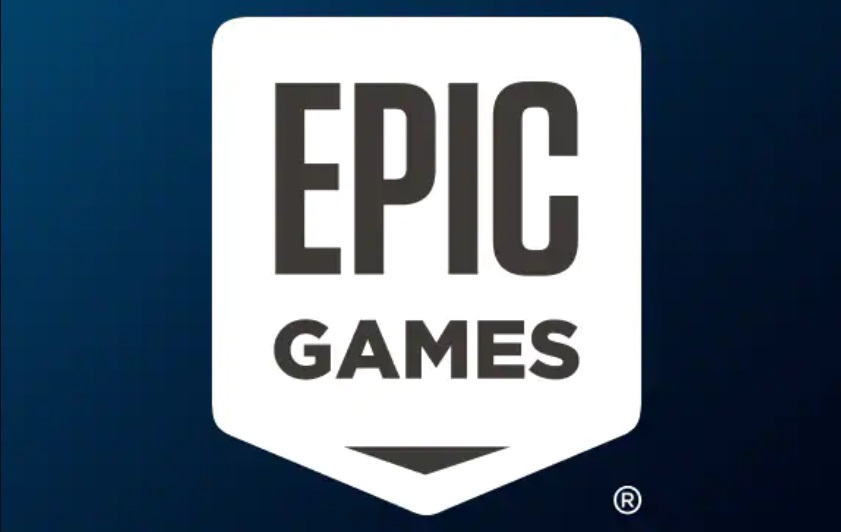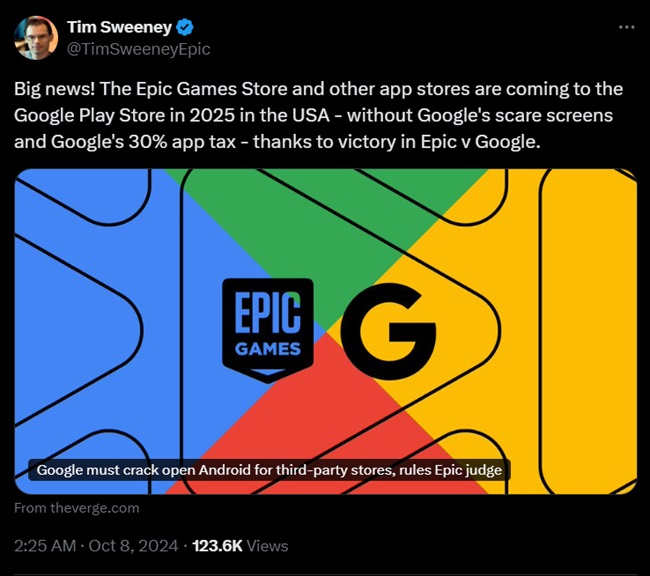
A U.S. judge on Monday mandated Alphabet’s Google to revise its mobile app business, granting Android users more freedom to download apps and manage transactions.
This decision follows a jury verdict favoring Epic Games, the maker of Fortnite, which accused Google of monopolizing the Android app marketplace.
Ruling Against Google
Judge James Donato ruled in the case Epic v. Google, confirming that Google’s Play Store and Billing service constitute an illegal monopoly.
This ruling comes after a lengthy lawsuit filed by Epic Games three years ago against both Google and Apple regarding their app store practices. The judge’s order requires Google to implement significant changes for three years, from November 1, 2024, to November 1, 2027.
Key Changes for Developers
Under the new ruling, Google must:
- Allow Rival App Stores: Google will permit third-party app stores to operate within its Play Store, granting them access to the full catalog of apps unless developers opt out.
- Eliminate Payment Restrictions: Google cannot mandate that developers use its Play Billing system for transactions, allowing them to inform users about alternative payment methods.
- Promote Sideloading: Developers can link to download options outside of the Play Store and set their own app prices without Google’s interference.
Additionally, Google is prohibited from:
- Sharing revenue with individuals or entities distributing Android apps or launching their app stores.
- Offering financial incentives to developers for exclusive launches or to deter rival stores.
- Compensating device makers or carriers for preinstalling the Play Store over competing app stores.
A Shift in the App Marketplace
Epic Games successfully argued that Google’s partnerships with developers and device manufacturers hinder competition from alternative app stores. Judge Donato noted that allowing access to the Google Play catalog will enable rival stores to compete more effectively.
However, Google will retain some oversight regarding safety and security within the Play Store. The ruling allows Google to implement necessary security measures and charge fees for these services, with disputes overseen by a technical committee appointed by both Google and Epic.
Limited Duration of Changes
Although Epic sought a six-year period for these changes, the judge settled on three years. Judge Donato emphasized the need for balance, stating,
The provisions are designed to level the playing field for the entry and growth of rivals without burdening Google excessively.
The judge also pointed out that even large companies like Amazon struggle to compete with Google due to its established network effects.
Epic’s Response and Future Plans
Tim Sweeney, CEO of Epic Games, described the ruling as a victory, announcing on X that Epic’s store and other third-party app stores will be available on Google Play starting in 2025, free from Google’s 30% fee.

This follows Epic’s lawsuit against Google and Apple, which accused them of illegal monopolies after Fortnite was removed from their app stores.
Google’s Plans to Appeal
In response to the U.S. court order mandating changes to Android and Google Play, Lee-Anne Mulholland, Google’s Vice President of Regulatory Affairs, raised concerns that these changes could undermine consumer privacy, hinder app promotion, and reduce competition. While the modifications may benefit Epic, Mulholland warned they could harm American consumers, developers, and device manufacturers.
Mulholland highlighted that the changes contradict a previous court ruling in a similar case involving Apple, despite Android being an open platform offering more choice. Google has appealed the decision and is seeking to delay changes while the appeal is reviewed.
In its appeal, Google will argue:
- Android and iOS are Direct Competitors: The court’s decision incorrectly isolates Android as its own market. Consumers choose between Android and iPhone based on price, security, and quality.
- App Developers Must Invest in Both Platforms: The decision overlooks that developers allocate resources to both Android and iOS. Google supports Android developers with tools and training, competing with Apple for their attention.
- Android is an Open Platform: Android allows multiple app stores and sideloading. For example, Epic Games offers Fortnite through the Samsung Galaxy Store, the Epic Games Store, and sideloading, even when it wasn’t available on Google Play.
Mulholland emphasized that Android has expanded consumer choice, lowered costs, and improved access to apps. The court ruling and Epic’s requested changes jeopardize these benefits and weaken Android’s competition with iOS.
Epic’s Additional Lawsuit
One week before the ruling, Epic filed another lawsuit against Google and Samsung, accusing them of adding friction to third-party app stores in anticipation of this court decision. Judge Donato will oversee this case as well.
Similar to its legal battle with Apple, Google is expected to engage in a lengthy appeals process. The court’s injunction is set to take effect on November 1, but Google’s legal challenges may delay its implementation.
The outcome of Epic v. Google could significantly reshape app distribution on Android devices, and the long-term effects on the marketplace remain to be seen.
